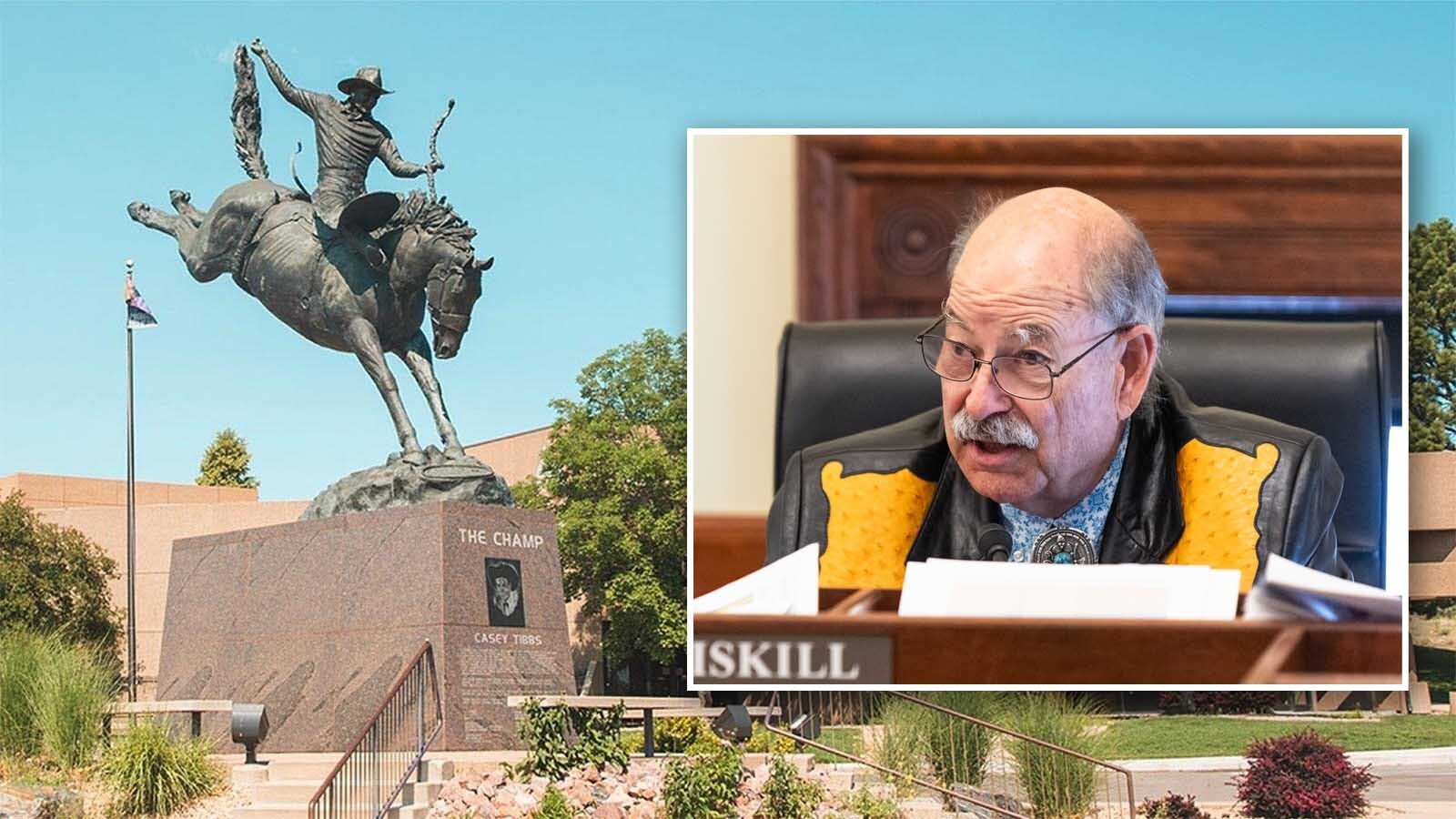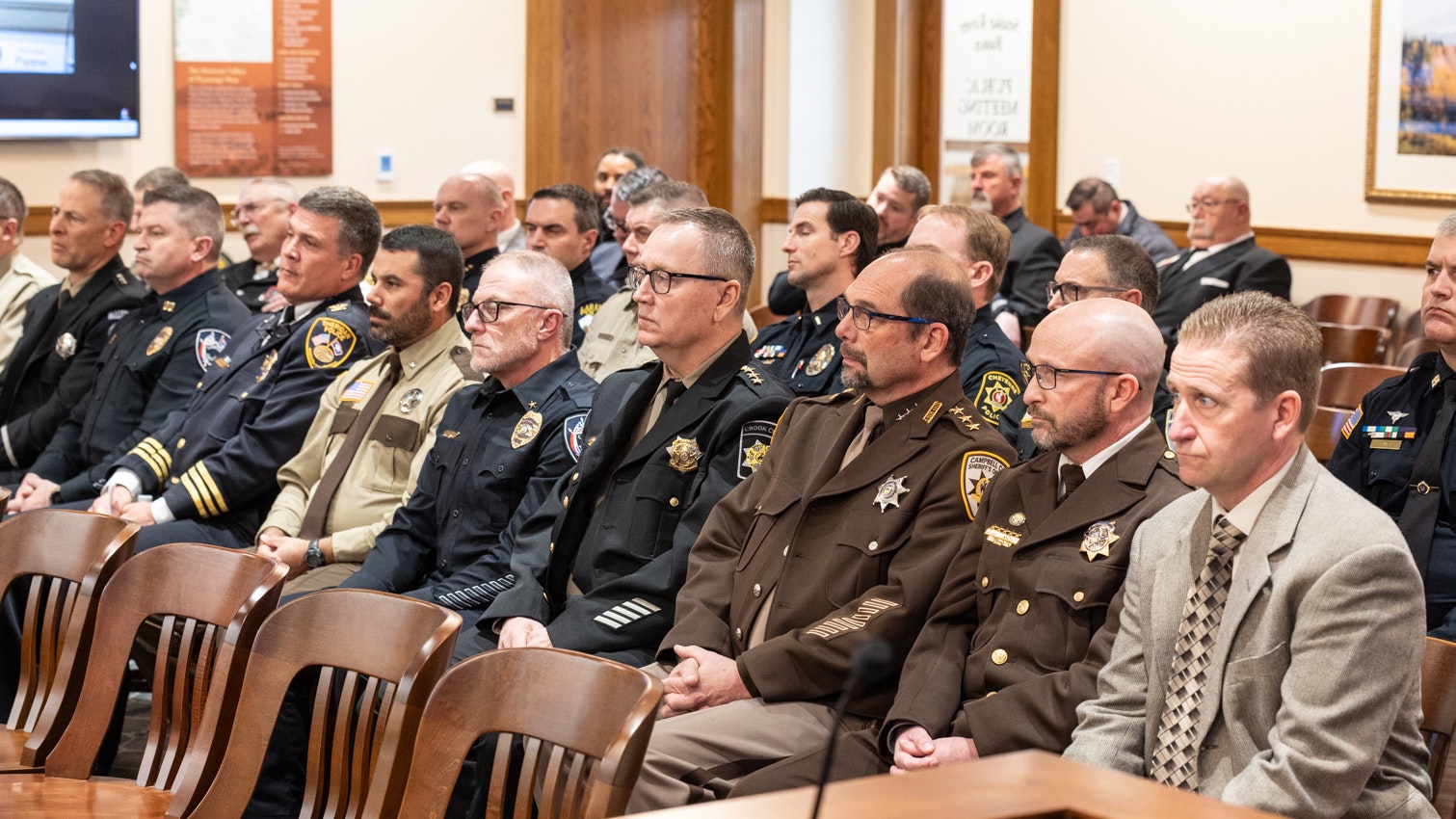A federal judge on Tuesday dismissed a voting-advocacy group’s lawsuit challenging Wyoming’s new law that requires proof of citizenship and Wyoming residency before someone can register to vote. Secretary of State Chuck Gray celebrated the ruling. He had been named in the suit.
A Wyoming-based federal judge on Tuesday dismissed a voter-rights coalition’s challenge of the state’s new voter registration law, which requires people to present proof of U.S. citizenship and Wyoming residency to register to vote.
The Equality State Policy Center, which is a voting-advocacy umbrella organization, does not have standing to challenge the law in federal court, U.S. District Court Judge Scott Skavdahl ruled Tuesday.
He dismissed the case without prejudice, meaning plaintiffs could file it again with differing circumstances or support.
Wyoming Secretary of State Chuck Gray, whom the lawsuit challenged in his official capacity, celebrated the dismissal in a statement.
“I’m extremely pleased with the court’s ruling granting our motion to dismiss this outrageously wrong lawsuit,” Gray said in the statement. “This is a huge win for the people of Wyoming. Proof of citizenship for registering to vote is a common sense, conservative election integrity measure and was the number one priority of our administration’s conservative election integrity reform agenda and a key priority of President Donald Trump.”
Gray called the challenge “an attempt by the radical Left to undermine the common-sense election integrity measures Wyomingites want” but was nevertheless “no match for our vigorous defense.”
Gray called the court ruling a victory for truth, commonsense and conservative values.
He also thanked the federal Department of Justice for its statement of interest, which had supported the new Wyoming law formerly known as House Bill 156.
The Equality State Policy Center’s attorney, Denver-based attorney Darold Killmer of Killmer Lane LLP, did not immediately respond to a Tuesday voicemail request for comment.
Laudable, But…
The Equality State Policy Center’s goal of voter access is “laudable,” wrote Skavdahl, but the group hinged its claim that it has grounds to challenge the law on “broad, conclusory allegations lacking factual substance.”
The U.S. Constitution requires federal courts to confine their judgments to “cases and controversies,” which over time has bred various standing tests. The most common of those requires judges to see whether a plaintiff, in this case the Equality State Policy Center, can tie its challenge to actual harm, traceable to the civil defendant, and one which the court can address or remedy.
The Equality State Policy Center failed to show that because, as a group made of other groups, none of its members are voters.
So none of its members could suffer directly from policies that inhibit voter access, wrote Skavdahl.
The case resembles the 2023 U.S. Supreme Court case in which the high court denied standing to a group of pro-life medical groups, which sued over federal approvals of abortion-inducing drugs.
That coalition, likewise, didn’t show a direct and real harm from the drug’s availability.
Sometimes…
Sometimes groups can achieve standing by showing they represent people who are harmed by the policy at issue.
This method doesn’t work here either, wrote Skavdahl, because the group didn’t point to hard evidence that one of its members is about to suffer voter inhibition.
And claims that the member groups’ members could suffer harm are too far removed from the issue, the order indicates.
Some of the groups within the suing coalition tried to remedy this by pointing to potential problems for victims of domestic violence and others. They didn’t identify these people specifically.
“While Plaintiff makes some rather sweeping and conclusory generalizations in its standing argument, the Court ‘is not bound by (those),’” at this stage, wrote Skavdahl. “Simply averring that an organization-member’s unidentified individual member would have standing or that an unidentified non-member voter somewhere in Wyoming would have standing is insufficient to demonstrate Plaintiff’s representational standing to sue on these unidentified individuals’ behalf.”
The bill's lead sponsor state Rep. John Bear, R-Gillette, told Cowboy State Daily he's grateful for Skavdahl's "commonsense decision to dismiss Marc Elias and the ESPC's frivolous lawsuit."
Elias, founder of high-profile voter-access firm Elias Law Group, did not sign onto the case personally though four attorneys from his firm did.
Bear continued: "It is disturbing to me the length that the Left will go to in order to ensure that our elections remain vulnerable. No matter how hard the Left tries, hypothetical aggrieved mystery plaintiffs do not have standing in American courts."
Clair McFarland can be reached at clair@cowboystatedaily.com.





